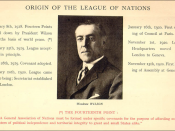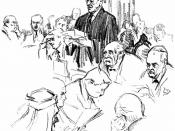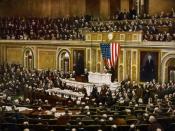The four volumes of The Intimate Papers of Colonel House began to appear in 1926, two years after Wilson died. Early in the Wilson administration, Colonel House had remarked that he had just one object and purpose in life, and that was to present Woodrow Wilson to the world as he really was in all his greatness. However, when The Intimate Papers appeared, they represented Colonel House as the inspiration, the originator, and almost the dictator of many of the most important Wilsonian policies. They stirred the embers of controversy, and led Admiral Cary Travers Grayson, a Virginia-born Admiral who became Wilson's personal physician, to write an article disputing the "facts" presented in those four volumes. Grayson's relations with the President were deep and abiding, and lasted until Wilson died in 1924. He went everywhere with him, and he saw the unique relationship between the President and Colonel Edward M. House as it flourished, and as it finally withered.
Colonel House occupied a position unlike any other in the history of our country. In the President's esteem and confidence he was above all Cabinet officers. He knew the President's political thoughts as probably no other man knew them. Because he had the capacity to take a broad view of the whole political field and other reasons, Wilson regarded him as one of his best advisors. If Colonel House had been content to be the supplier of practical information to the President, he would have retained a unique reputation in the history of American politics.
No one who knew the two men could credit the notion that Wilson looked to Colonel House for large, constructive political policies. One of Wilson's manifest gifts was the genius for getting the great underlying idea in a big proposition. When he fixed his attention...


